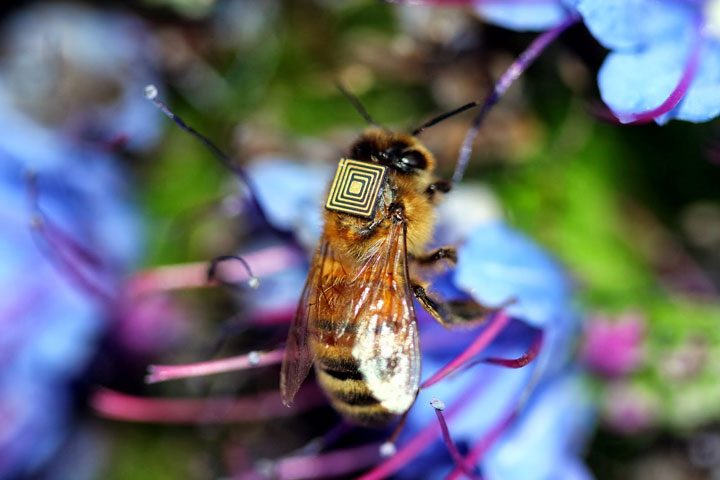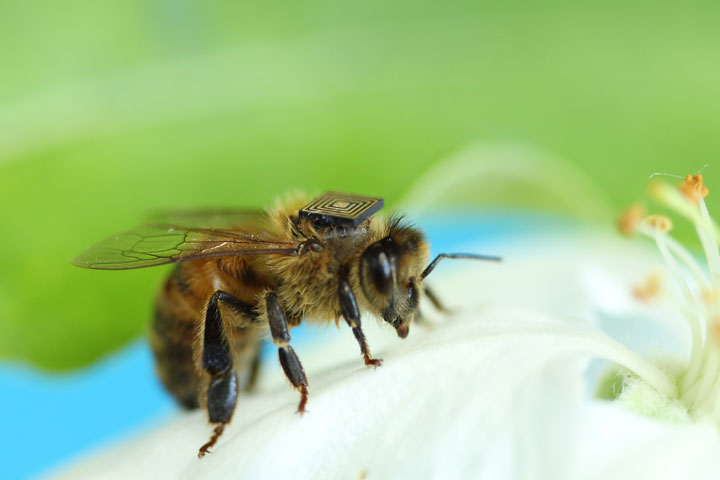Owing to worldwide decline in Bee population, an Australian laboratory has started putting sensors on the back of thousands of bees. This arrangement will help scientists understand their movements and behaviour during pollination. We tell you more about this amazing project!
In total, nearly 5,000 bees have been equipped with this device. The sensors are in the form of squares of 2.5 mm and are placed like small backpacks on the thorax of the bees. “The bees are social insects that return to the same point and run a very predictable schedule. Any change in their behavior indicates a change in their environment,” says Paulo de Souza, director of the study.
To achieve this, researchers must first make bees asleep by putting them in a refrigerated compartment for a short time. Tiny detectors are then bonded with the bee using an adhesive. After a few minutes, the little beasts wake up and return to the hive. Therefore, they start giving valuable information.
[youtube]http://www.youtube.com/watch?v=AUJiGD-WJ88[/youtube]
Understanding their movements will allow researchers to improve the performance of bee pollination and productivity in Australian farms. They have indeed a critical role in agriculture. Bee pollination can increase productivity by 17%. Globally, a third of the food we eat depends on pollination, but now the bees are disappearing, so there is a urgency.
This study should also help scientists to know more about the factors responsible for this so-called “colony collapse syndrome. “About a third of the food we eat depends on pollination, but bee populations worldwide are falling due to the Varroa mite, the formidable parasite, and colony collapse disorder colony,” said Paulo. Fortunately, the Australian colonies of bees are still non-affected by the phenomena.
We hope that these studies will be successful, although we should wait a little before conclusive results. The research team will be able to identify threats to bee colonies. Indeed, in recent years 10-30% of bees (in most of the countries) are extinct. We hope that through these sensors the scientists will succeed in saving the lives of bees. What do you think about the efforts of the scientists to protect them before it is too late?


